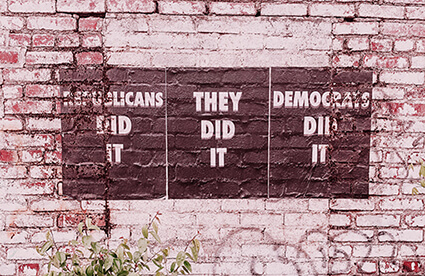Hi! It’s konkaz (@konkazuk).
I sometimes come across the phrase business interests in the news and books.
However, its meaning varies depending on the context, which can make it challenging to interpret precisely.
Therefore, in this article, we will explore what business interests really mean and how they are used.
What Are Business Interests?

The interpretation of the phrase business interests varies between business and political contexts.
Especially in political discussions, business interests can go beyond simply meaning “corporate profits” and refer to specific policy decisions or political influence.
① Business Interests in a Business Context

In business-related contexts, business interests often refer to corporate profits or the interests of a company. In some cases, it may also include specific business sectors in which a company is involved.
For instance, here are some example sentences.
▫️ Our company must protect its business interests in the face of increasing competition.
▫️ She left her executive position to focus on her personal business interests.
▫️ Chinese corporations are expanding their business interests in Southern Africa.
② Business Interests in a Political Context

In political discussions, business interests often mean economic privileges, where certain organisations or individuals have exclusive or preferential access to financial benefits, as well as corporate influence.
Some example sentences are…
▫️ Foreign business interests played a role in shaping the trade agreement.
▫️ Lobbyists advocating for business interests are urging tax reductions for corporations.
▫️ New labour Party has been accused of prioritising business interests over environmental concerns.
Examples of Business Interests in Politics

The reason I started looking into “business interests” in the first place was the following passage from Noam Chomsky’s book:
“Economic elites and organized groups representing business interests have substantial independent impacts on U.S. government policy, while average citizens and mass-based interest groups have little or no independent influence.”
So, I became curious about what these two groups—organized groups representing business interests and mass-based interest groups—actually are, and decided to look into them.
▫️ Organized groups representing business interests
Here are some examples of groups that advocate for American corporate interests and seek to influence the government…
🔹 Corporate Lobbying Groups
⚫ U.S. Chamber of Commerce
The largest corporate lobbying group in the U.S., advocating for deregulation and corporate tax cuts.
⚫ Business Roundtable
A group of over 200 major CEOs that influences economic and tax policies.
⚫ National Association of Manufacturers
An organisation representing the manufacturing sector, advancing trade policies and efforts to ease labour regulations.
🔹 Industry-Specific Lobbying Groups
⚫ Pharmaceutical Research and Manufacturers of America
A group that supports the interests of pharmaceutical companies and opposes drug price regulations.
⚫ American Petroleum Institute
An organisation representing the oil and gas industry, advocating for deregulation and the expansion of fossil fuel use.
⚫ American Bankers Association
A group that supports the U.S. banking sector, seeking financial deregulation and tax benefits.
🔹 Political Groups Funded by Corporations
⚫ Americans for Prosperity
Founded by the billionaire Koch brothers, this group promotes small government, deregulation, and corporate tax reductions.
⚫ American Crossroads
A Republican-leaning political funding group that supports economic policies favouring large corporations and wealthy individuals.
⚫ Priorities USA
A Democratic-leaning political funding group that receives financial support from major tech companies and promotes liberal policies.
🔹 Corporations Themselves
⚫ Google, Amazon, Facebook (Meta), Apple, Microsoft, etc.
Actively engaging in lobbying to shape digital market regulations and tax policies.
⚫ ExxonMobil, Chevron, ConocoPhillips, etc.
Lobbying against climate policies that could restrict fossil fuel industry operations.
⚫ Goldman Sachs, Citigroup, Bank of America, etc.
Advocating for reduced financial regulations and policy adjustments favourable to the banking sector.
▫️ Mass-based interest groups
Examples of groups that advocate for the interests of ordinary citizens or specific social communities and seek to influence politics include…
🔹 Labour Unions
⚫ Service Employees International Union
⚫ American Federation of Labour and Congress of Industrial Organisations
Fight for better working conditions and workers’ rights.
🔹 Civil Rights Organisations
⚫ American Civil Liberties Union
⚫ National Association for the Advancement of Colored People
Promote human rights, equality, and democratic values.
🔹 Environmental Activist Groups
⚫ Oceana
⚫ Sierra Club
⚫ Greenpeace
⚫ 350.org
Campaign for environmental conservation and climate justice.
🔹 Social Movements
⚫ Black Lives Matter
⚫ MeToo Movement
Focus on specific social issues and seek political and societal change.
These examples show how some companies prioritise their corporate interests (business interests①), spending huge amounts on lobbying, while advocacy groups that depend on grassroots support from ordinary people have little influence compared to corporate power (business interests②).
It’s unfortunate that we live in a society where corporations have overwhelming influence, and the voices of regular citizens are barely heard.
How many more years will humanity last?
Well, that’s it for today’s article on “business interests“.
Until next time,
konkaz
*You can read this blog post in Japanese from the link below.
👉 “business interests” とは?意味・使い方を例文で解説!

